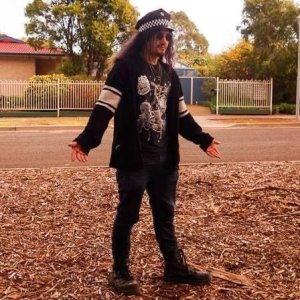Aceman
I am your doctor of love!
A few questions before I make my suggestions - so subject to change.
#1 How loud is the drummer? Bottom line for audience and you is you have to be louder than him.
#2 How many and what kind of outs are on that amp? I assume none for headphones, DI etc. (Sorry - not a Vox guy)
Get a mic stand of cab attachment, a Shure 57 and a run the mic to the board.
Put the amp behind you pointed forwards
Blend the guitar and vocals in the monitor feed
Now - some general Items:
- As mentioned, get someone to do the mix (or play guitar while you do the mix). The value of a full band soundcheck song for a sound person to get it right can't be overstated - and you need to be there to sing/play and make sure you can hear everything
- Keep the amp volume low and the monitor mix where it needs to be, and the PA/House mix does the rest
- Put everything in the PA if you can. Drums and bass and all.
- Think about a couple of small powered monitors. One for bass, one for you, one for drums.
#1 How loud is the drummer? Bottom line for audience and you is you have to be louder than him.
#2 How many and what kind of outs are on that amp? I assume none for headphones, DI etc. (Sorry - not a Vox guy)
Get a mic stand of cab attachment, a Shure 57 and a run the mic to the board.
Put the amp behind you pointed forwards
Blend the guitar and vocals in the monitor feed
Now - some general Items:
- As mentioned, get someone to do the mix (or play guitar while you do the mix). The value of a full band soundcheck song for a sound person to get it right can't be overstated - and you need to be there to sing/play and make sure you can hear everything
- Keep the amp volume low and the monitor mix where it needs to be, and the PA/House mix does the rest
- Put everything in the PA if you can. Drums and bass and all.
- Think about a couple of small powered monitors. One for bass, one for you, one for drums.


